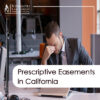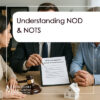
Selling or transferring real estate in California often comes with hidden costs. One of the most overlooked is the Documentary Transfer Tax (DTT) – a fee that can surprise even experienced property owners. However, many transfers qualify for exemptions that reduce or eliminate this tax entirely.
If you’re unfamiliar with how these exemptions work, you could end up paying thousands of dollars unnecessarily. The difference often comes down to legal knowledge and attention to detail. A qualified real estate attorney can help you take full advantage of every available exemption and avoid costly errors.
What Is the Documentary Transfer Tax?
The Documentary Transfer Tax is a one-time tax assessed on the transfer of real property in California. It is governed by California Revenue & Taxation Code §11911 and is typically calculated at a rate of $0.55 per $500 of the property’s sale price or fair market value.
However, this base rate applies at the county level. Many cities impose additional transfer taxes.
For example:
- Los Angeles County: Adds up to $4.50 per $1,000.
- City of Los Angeles (“Measure ULA”) can tack on even more for high-value transfers.
This makes knowing your exemptions not just helpful — but critical.
The tax is generally paid at the time the deed is recorded with the County Recorder’s Office.
Common Transfer Tax Exemptions in California
Several real estate transfers are exempt from the DTT under California law. Here are the most common scenarios:
- Gifts or transfers without consideration
No money exchanged? You may be exempt under §11911 or §11930. - Spousal or domestic partner transfers
Transfers due to marriage, divorce, or legal separation often qualify under §11927. - Transfers into or out of a revocable trust
If there’s no change in proportional ownership, this is typically exempt under §11930. - Parent-to-child or child-to-parent transfers
Some family transfers may qualify if no money changes hands. - Proportional interest changes
g., Adding a spouse to title with 50% interest, while retaining your own 50%.
Example:
A homeowner transfers title to her revocable living trust, where she is the sole trustee and beneficiary. Since there is no change in beneficial ownership, the transfer is exempt under §11930.
How to Properly Claim a Transfer Tax Exemption
To claim a transfer tax exemption, the deed must clearly state the applicable exemption and cite the appropriate section of the Revenue & Taxation Code.
For example:
“This is a bona fide gift; no consideration is being given (R&T Code §11911).”
In addition:
- Some counties require a Documentary Transfer Tax Affidavit or declaration under penalty of perjury to support the exemption.
- Documentation must be accurate and complete to avoid delays or tax assessments.
- The deed must be recorded with the County Recorder’s Office in the correct county, following all local rules.
Common Mistakes That Can Trigger the Tax
Even if a transfer qualifies for an exemption, errors in documentation can result in unnecessary tax liability. Common issues include:
- Failing to cite the correct code section on the deed.
- Omitting the exemption language entirely.
- Assuming all family transfers are exempt (they’re not, especially if consideration is involved).
- Not providing supporting documents, such as a court order for a divorce-related transfer.
- Missing local filing requirements or using outdated forms.
Example:
An individual transfers a home to his adult child, assuming it qualifies as a gift. However, because the child paid part of the mortgage in exchange for the transfer, it is not exempt unless properly documented as a partial gift or sale.
Why Legal Guidance Matters
Documentary transfer tax exemptions can be powerful tools, but they must be handled correctly. Small mistakes—such as using the wrong language or failing to meet a deadline—can result in unexpected tax bills or rejected filings.
At Vokshori Law Group, our attorneys specialize in real estate law, offering precise legal strategies that protect your assets and lower your costs. Unlike general law firms, we focus on real estate litigation and transactional law, ensuring homeowners maximize their exemptions and avoid tax pitfalls. Contact us today for a free consultation and let us help you claim every exemption you’re entitled to.
Call us at (855) 855-2608 or visit www.VokLaw.com to learn more.






